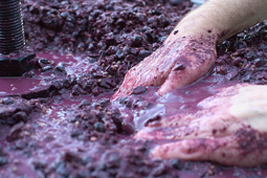Each summer, the public park directly across the street from our Sebastopol, (Sonoma County) California home is transformed into a site for festivals, concerts and live theater. Ives Park is the summer home of Main Stage West, our resident theatre company, located two blocks away in “Downtown” Sebastopol.
 This year, we were treated to two beautifully acted, staged, and costumed plays: a non-Shakespearean work: Carlo Goldoni’s classic comedy, The Servant of Two Masters and Shakespeare’s The Tempest.It’s hard to believe that theater can still be compelling, engaging and enjoyable when performances are carried out within earshot of nighttime Little League playoffs, but when it’s done as well as this, it is. At its best, theater can transport an audience to another time and place, despite Billy’s cheering parents or the whoops of his teammates.
This year, we were treated to two beautifully acted, staged, and costumed plays: a non-Shakespearean work: Carlo Goldoni’s classic comedy, The Servant of Two Masters and Shakespeare’s The Tempest.It’s hard to believe that theater can still be compelling, engaging and enjoyable when performances are carried out within earshot of nighttime Little League playoffs, but when it’s done as well as this, it is. At its best, theater can transport an audience to another time and place, despite Billy’s cheering parents or the whoops of his teammates.

This year, I took my 12 year old Granddaughter, Marley, to both performances and she loved them. An out-of-town Granddaughter, Kelly (11), joined us for The Tempest. I wasn’t sure about taking kids this young to a Shakespeare play, but they loved it — especially the scenes with romance or slapstick humor.
I know I’m lucky to live where the arts and love theater are valued and where they are made accessible and affordable.
Thank you, Sebastopol!

 Rather than bash my head against a wall, I’ve found that it’s better for me to simply stop working on the project that has me frustrated and set it aside to quietly “ferment” while I tackle something else.
Rather than bash my head against a wall, I’ve found that it’s better for me to simply stop working on the project that has me frustrated and set it aside to quietly “ferment” while I tackle something else.